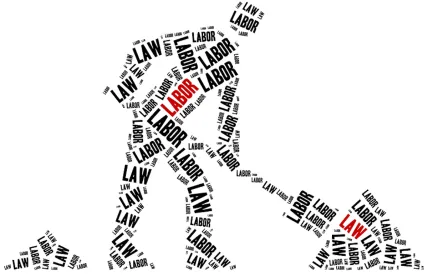A number of important New York labor and employment law developments from 2022 should be top of mind as employers ease into 2023. State legislators paid significant attention to anti-discrimination and anti-harassment statutes, employee privacy, and worker health and safety measures, among other issues. The following list highlights a selection of these key labor and employment-related laws:
Senate Bill S4394A: An Act to Amend the Labor Law, in Relation to Retaliatory Actions by Employers
This amendment to New York’s whistleblower law, which became effective January 26, 2022, extends New York’s whistleblower protections to include former employees and independent contractors; expands the scope of protected activity; broadens the definition of “retaliatory action” to include actual or threatened adverse employment actions, actions that would adversely impact future employment, and reporting of the suspected citizenship or immigration status of employees, their family or their household members; and imposes notice requirements upon New York employers. The amendment also extends the statute of limitations and provides for a vast array of damages in the event of a violation of the law.
Senate Bill S5870: An Act to Amend the Executive Law, in Relation to Retaliation Against Certain Unlawful Discriminatory Practices by Employers
This law, which became effective on March 16, 2022, expressly prohibits employers from releasing the personnel files of any employee who has disclosed or attempted to disclose information about unlawful practices by employers.
Senate Bill S2628: An Act to Amend Civil Rights Law, in Relation to Electronic Monitoring
This law, which became effective May 7, 2022, requires that all New York employers provide employees with written notice at the time of hire of various electronic monitoring activities. The notice must be in writing or sent electronically, and employees must acknowledge receipt in writing or electronically. Employers must also post an electronic monitoring notice in a “conspicuous place,” readily available for viewing by employees subject to electronic monitoring.
Senate Bill S812B: An Act to Amend the Executive Law, in Relation to Establishing a Toll-Free Confidential Hotline for Complaints of Workplace Sexual Harassment
This law, which became effective July 14, 2022, requires the New York State Department of Labor and Division of Human Rights to create a toll-free, confidential hotline for employees to use as a means of reporting incidents of sexual harassment in the workplace. Furthermore, the law requires that employers include information in any materials or information employers must provide to employees pertaining to sexual harassment.
Senate Bill S9427A: An Act to Amend the Labor Law, In Relation to Requiring Employers to Disclose Compensation or Range of Compensation to Applicants and Employees
This law was signed by Governor Kathy Hochul on December 21, 2022, and becomes effective in September of 2023, requiring New York employers with four or more employees to include the job description and compensation or compensation range for any job, promotion, or transfer opportunity they advertise.
Senate Bill S1958A: An Act to Amend the Labor Law, In Relation to Clarifying That Workers Shall Not Be Punished or Subjected to Discipline by Employers for Lawful Absences
This law was signed by the Governor on November 21, 2022, and becomes effective in February of 2023. It prohibits employers that maintain “no fault” attendance policies (e.g., by using a “points” system to monitor attendance) from terminating, threatening, penalizing, or otherwise discriminating or retaliating against an employee for taking legally-protected absences. Specifically, under this law New York employers will be expressly prohibited from assessing any demerit, occurrence, or any other point, or deducting from an allotted bank of time, which subjects or could subject an employee to disciplinary action (e.g., failure to receive a promotion or loss of pay) due to a legally-protected absence.
Senate Bill S9450: An Act to Amend the Labor Law, In Relation to Employer Violations of Certain Provisions Allowing for Workplace Safety Committees
This new law serves as an amendment to the NYS Health and Essential Rights Act (NY HERO ACT) and requires employers to recognize workplace safety committees formed by employees within five days of receiving a request from employees for committee recognition. Employers in violation of this requirement will be subject to a civil penalty of $50 per day until the violation is remedied.
Senate Bill S8922A: An Act to Amend the Labor Law, In Relation to Establishing the Warehouse Worker Protection Act
This law, which was signed by the Governor on December 21, 2022, and becomes effective in January of 2023, imposes significant protections against unreasonable quotas for certain warehouse and distribution center employees working for employers with 100 or more employees at a single warehouse distribution center or 500 or more employees at multiple facilities in the state. Among other requirements, the law requires employers to provide written notice regarding quotas in certain circumstances, including upon hire; imposes certain meal and rest break requirements; imposes certain record-keeping requirements; and allows employees to request written quota descriptions. The bill also contains anti-retaliation language.
Senate Bill S621B, An Act to Amend the Penal Law, In Relation to Crimes Involving the Death
Or Injury of a Worker
This law was signed by the Governor on December 23, 2022, and becomes effective in January of 2023. It expands the range of criminal offenses and impose significantly increase criminal penalties for corporations committing crimes which result in the death or injury of a worker.
The implementation of these new laws may require employers to revise and rethink some of their employment practices and policies. Employers may wish to speak with competent legal counsel as they review the legislation to ensure compliance and determine how these new laws affect their New York workers.




 />i
/>i

